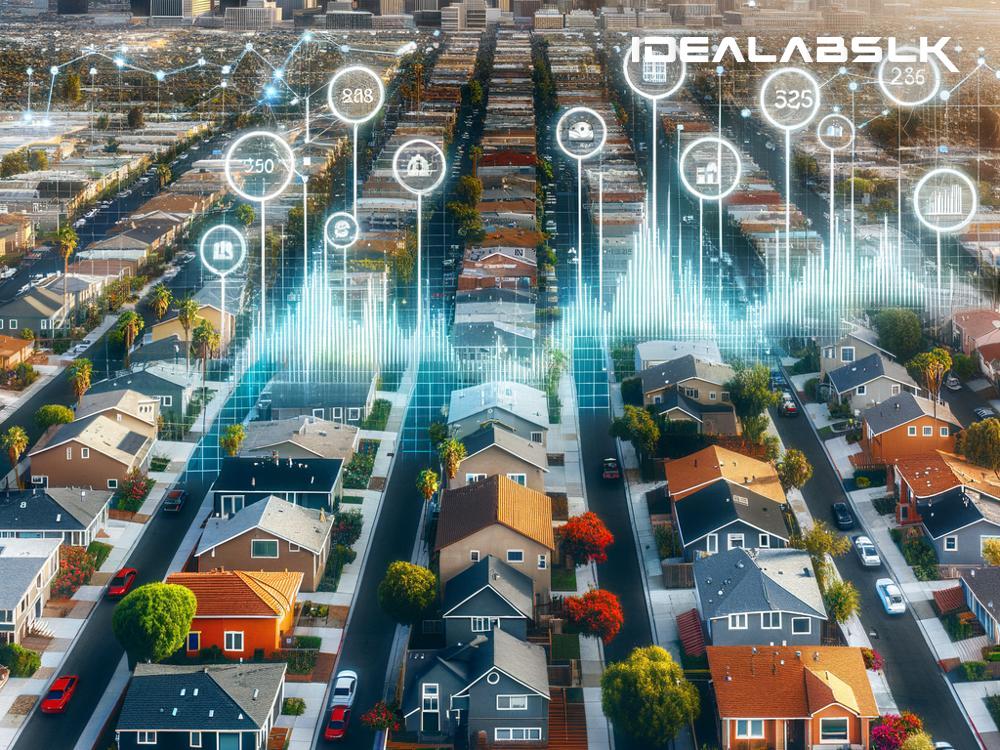AI for Analyzing Housing Market Shifts: A Simple Guide
As we navigate through the fast-paced digital age, artificial intelligence (AI) has become a cornerstone in transforming sectors across the board, and the real estate industry is no exception. The housing market, known for its complexity and the significant role it plays in the economy, has always required keen analysis to predict its shifts and trends. This is where AI steps in, proving to be an invaluable tool for anyone looking to understand and anticipate changes in the real estate market. Let's break down how AI is making a difference in analyzing housing market shifts in a way that's easy to understand.
The Basics of AI in Real Estate
Artificial intelligence, in the context of real estate, refers to the use of computer systems to perform tasks that typically require human intelligence. These tasks include learning from data, identifying patterns, and making decisions. When it comes to the housing market, AI can digest a massive amount of data — from past sales prices to the impact of school districts on home values — and use it to predict future trends and shifts.
Real-Time Data Analysis
One of the AI's standout features is its ability to analyze real-time data. In the past, real estate investors and analysts had to rely on historical data, which, while valuable, doesn't always paint the most accurate picture of the current market conditions. AI changes the game by processing and analyzing data as it comes in, allowing for more timely and accurate predictions. This means that both buyers and sellers can make more informed decisions, based on the very latest market insights.
Predictive Analytics
At the heart of AI's contribution to understanding the housing market is predictive analytics. By using algorithms and machine learning, AI can forecast market trends with a surprising degree of accuracy. For example, it can predict which neighborhoods are likely to see an increase in property values or which type of homes will become more popular in the coming months. This predictive power is incredibly useful for investors looking to make strategic decisions, as well as for buyers trying to find the right time to purchase a home.
Sentiment Analysis
AI doesn't stop at hard data; it also delves into the realm of sentiment analysis, gauging the mood and opinions of the market. By scanning and analyzing news articles, social media, and other digital content, AI can provide insights into how public sentiment is shifting and how this might affect the housing market. Whether it's optimism about a new development project or concerns about economic policy changes, AI can catch these sentiments and include them in its analysis, offering a well-rounded view of the market's direction.
Enhanced Visualization
Another area where AI excels is in data visualization. It's one thing to have access to a wealth of data, but understanding it is another thing entirely. AI tools can create detailed graphs, maps, and other visual representations of market trends, making it easier for anyone to grasp complex information at a glance. This can be particularly beneficial when identifying patterns over time or across different geographic areas.
Challenges and Considerations
While AI's potential in the real estate market is undeniable, there are challenges and considerations. One is the quality of data; AI's predictions are only as good as the data it's fed. Inaccurate or biased data can lead to misleading conclusions. There's also the issue of accessibility; not everyone has the means to invest in sophisticated AI tools.
A Bright Future
Despite these challenges, the future of AI in real estate looks bright. As technology continues to advance, AI will become even more accurate and accessible, further democratizing data and insights into the housing market. This shift is not just exciting for investors and real estate professionals; it benefits everyone by promoting a more transparent and understandable market.
In simple terms, AI is transforming how we analyze and predict housing market shifts, offering tools that are faster, more accurate, and capable of handling the complexity of real estate. Whether you're planning to buy a home, sell property, or invest in real estate, understanding the role of AI can give you a significant advantage in making informed decisions. The integration of artificial intelligence into the housing market is just one example of how technology is reshaping industries for the better, providing clarity and insight in an ever-changing world.

